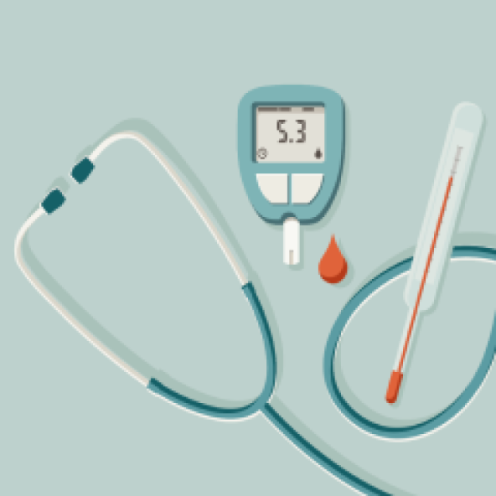- News
- Health
The NHS recommends people consume no more than 400 mg/day of caffeine - the equivalent to four cups of coffee
Rebecca WhittakerTuesday 25 November 2025 23:30 GMTComments
 CloseDoctor explains how many coffees you can safely drink in a day
CloseDoctor explains how many coffees you can safely drink in a day
Sign up for our free Health Check email to receive exclusive analysis on the week in health
Get our free Health Check email
Get our free Health Check email
 Email*SIGN UP
Email*SIGN UPI would like to be emailed about offers, events and updates from The Independent. Read our Privacy notice
Coffee drinkers could live five years longer than those who abstain from the hot beverage, a study has revealed.
Drinking a maximum of four cups of coffee a day could slow biological ageing by lengthening telomeres - structures that protect the ends of chromosomes. Shorter telomere length in these cells is associated with a higher risk of certain age-related diseases and is considered a marker for cellular ageing.
But beyond this quota of four cups a day - the equivalent of 400 mg/day of caffeine which is the maximum recommended by the NHS - no benefit was found.
Researchers suggest the powerful antioxidant and anti-inflammatory compounds in coffee could be responsible for boosting biological ageing and lengthening telomeres.
The study, published in the journal BMJ Mental Health, looked specifically at the effects coffee had on the ageing of people with severe mental illness by looking at the length of their telomeres.
 Drinking up to four cups of coffee a day could help slow biological ageing (Getty/iStock)
Drinking up to four cups of coffee a day could help slow biological ageing (Getty/iStock)“In moderation, coffee consumption might have a positive effect but has a reverse effect in large doses. Coffee consumption up to the limit of recommended cups per day was associated with a five-year younger biological age compared with non-coffee drinkers,” study authors said.
Telomeres sit on the end of chromosomes to stop them from becoming frayed or tangled - like the plastic tips on the end of shoelaces.
As we age telomeres become shorter, but this process is accelerated in those with major psychiatric disorders, such as psychosis, schizophrenia, and bipolar disorder, note the researchers.
These structures are sensitive to diet and possibly coffee, which when drunk in moderation has been associated with various health benefits.
Data from 436 adult participants from the Norwegian Thematically Organised Psychosis (TOP) study, was included. Of the participants 259 had schizophrenia; the rest (177) had affective disorders, including bipolar disorder and major depressive disorder with psychosis.
Participants were asked how much coffee they drank a day and were split into four groups: zero, one to two cups, three to four cups, and five or more cups.
Using blood samples researchers measured telomere length in white blood cells and found those who drank four cups a day had telomere lengths comparable to a biological age five years younger than that of non-coffee drinkers after adjusting for age, sex, ethnicity, tobacco use, type of mental ill health, and drug treatment.
Those who drank more than five cups of coffee a day had cellular damage.
Researchers suggest coffee’s anti-ageing benefits are due to its antioxidant properties.
“Telomeres are highly sensitive to both oxidative stress and inflammation, further highlighting how coffee intake could help preserve cellular ageing in a population whose pathophysiology may be predisposing them to an accelerated rate of ageing,” researchers explained.
But Dr Elizabeth Akam, Senior Teaching Fellow in Biosciences at Loughborough University, who was not involved in the study, suggested the researchers should have looked at the compounds in coffee, such as caffeine, in the blood.
“A noteworthy limitation of this study is that it treats ‘coffee’ as if it were a single substance. However, coffee contains many different compounds, and we don’t know which of these were administered, in what doses, or how much actually ended up in the bloodstream,” she said.
More about
CoffeeCaffeineAgeingJoin our commenting forum
Join thought-provoking conversations, follow other Independent readers and see their replies
Comments



.png?width=1200&auto=webp&trim=0%2C0%2C0%2C0)